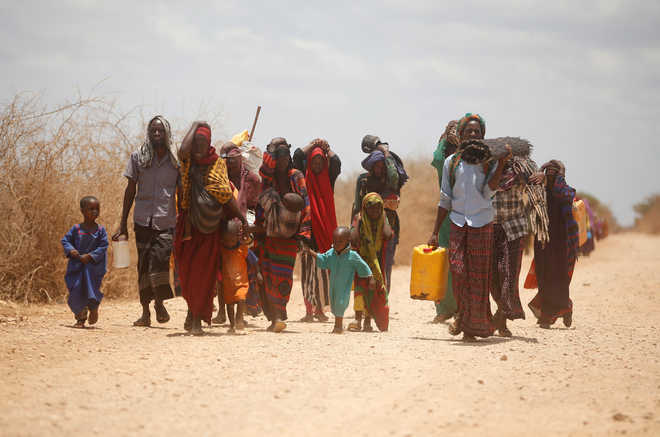
United Nations, March 24
The number of people around the world in danger of dying unless they get food urgently surged to 124 million last year, mainly because “people won’t stop shooting at each other,” the head of the UN food agency has said.
David Beasley told the Security Council by video link on Friday that almost 32 million of those acutely hungry people live in four conflict-wracked countries: Somalia, Yemen, South Sudan and northeastern Nigeria, where famine was averted last year.
“The link between hunger and conflict is as strong as it is destructive,” the executive director of the World Food Program said. “Conflict leads to food insecurity. And food insecurity can also stoke instability and tension which trigger violence.” Globally, Beasley said, 60 per cent of the 815 million chronically hungry people who don’t know where their next meal is coming from live in conflict areas.
UN humanitarian chief Mark Lowcock said “despite the wildest predictions, famines have become less frequent and less lethal over the past few decades.” He called this “an amazing achievement,” citing the dramatic expansion in agricultural output and productivity and the global reduction in poverty which has seen people gain purchasing power.
“The remaining risk of famine and hunger is now concentrated in a relatively small number of countries affected by large-scale, severe and protracted conflict,” Lowcock said.
“Almost 490 million undernourished people, and almost 80 per cent of the world’s 155 million stunted children, live in countries affected by conflict,” he said by video link.
Lowcock said a study released on Thursday by the World Food Program, the UN Food and Agriculture Organisation and the European Union confirmed that conflict, often combined with “extreme climate shock and high prices of staple food is the main driver of global food insecurity.”
While famine was averted last year, Lowcock said that according to the latest data, northeastern Nigeria, Yemen and South Sudan still face the risk of famine over the next six months. And there are also “extremely worrying” food security issues in Ethiopia, Somalia and Congo, he said.
Beasley, the WFP chief, also warned of pressures building now in Africa’s greater Sahel region, which is home to over 500 million people.
While the region is blessed with natural resources, arable land and young people needing jobs, he said it also faces constant food insecurity, is vulnerable to droughts and floods and has seen armed groups take advantage of the situation.